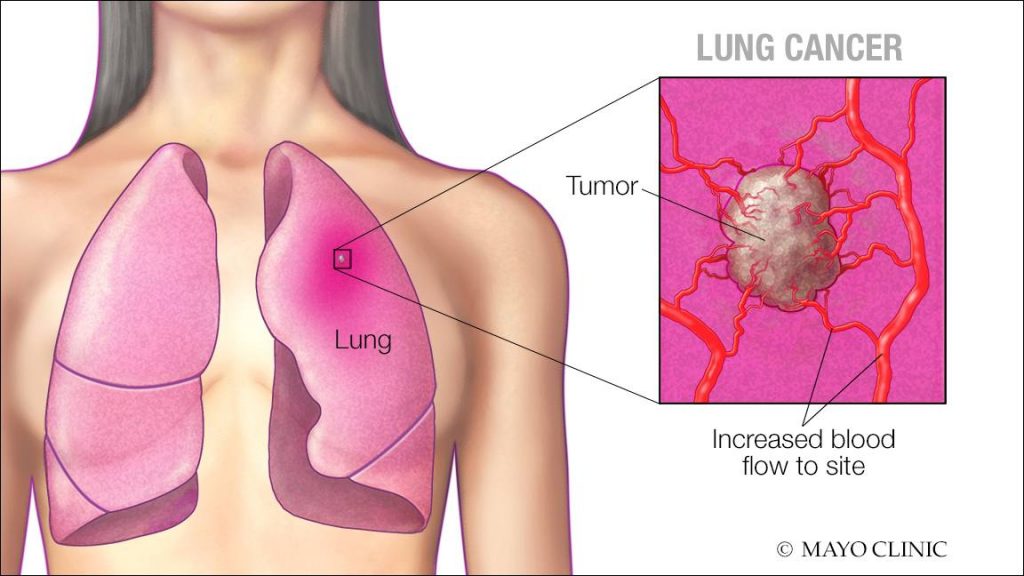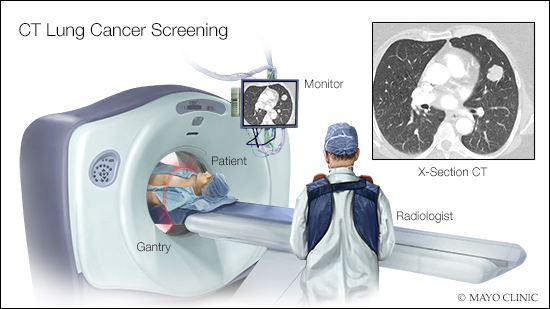Mayo Clinic expert on the importance of lung cancer screening

By Deb Balzer
Screening for lung cancer can save lives, and there's an urgent need for more screening of people of color. That's one of the takeaways from the "State of Lung Cancer" report from the American Lung Association.
"Lung cancer is the largest (cancer) killer of adult men and women worldwide. Many of the reasons for that is it's so late in its stage, often, when it's diagnosed," says Janani Reisenauer, M.D., a Mayo Clinic thoracic surgeon and interventional pulmonologist. "Historical data show that 70% of lung cancers that were being diagnosed were at stage 3, which makes it much more challenging to treat and cure someone of lung cancer."
"Through lung cancer screening, we've been able to identify patients much earlier in their stage, which gives them more treatment options and much more hopeful chances of cure. For that reason, screening is important," she says.
Watch this video to hear Dr. Reisenauer talk about lung cancer screening:
The latest update from the American Cancer Society recommends that people with a substantial smoking history undergo an annual low-dose CT scan for lung cancer screening. Dr. Reisenauer says the new guidelines allow a broader population to be eligible for screening.
"Any patient with a significant smoking history and over age 55 (are the new guidelines). It used to be just 20 years of smoking, and now we've redefined it to say the number of cigarettes per day times the number of years smoking," she says.

"Even if you were smoking for only 10 years and not 20 years, but you were smoking twice as much, you might also be a candidate under the new screening guidelines for a CT," she says.
Dr. Reisenauer recommends that eligible patients talk with their primary care team to let them know you are interested in screening.

How lung cancer screening works
Screening includes a low-dose CT scan to detect suspicious lung nodules and signs of lung cancer. Detecting lung cancer in its early stages significantly increases the likelihood of successful treatment and cure.
If lung cancer is confirmed, Dr. Reisenauer says a patient will work with a multidisciplinary team to decide the best treatment option.
She says Mayo Clinic continues to pioneer lung cancer treatment through research and innovation, working for better patient outcomes.
"We generate patient-specific individualized custom treatments for those patients, whether it's given IV or a surgery, or something completely novel like through the robotic bronchoscope. Our understanding of how a patient gets lung cancer and how we can treat it to where it's not the No. 1 cancer killer worldwide — I think we'll make much movement there in the next 10 to 20 years," she says.
"And I think screening is a part of that so we can capture these patients early, understand what we're dealing with. But as we're capturing these patients, we are trying to understand how these tumors behave on a cellular, molecular and genetic level. This is very new, and it's an area of interesting science," Dr. Reisenauer says.
Learn more
Learn more about lung cancer and lung cancer screening.
Join Mayo Clinic Connect, an online community moderated by Mayo Clinic, to connect with other patients and caregivers.
Also, read these articles:
- "Reducing your risk of lung cancer"
- "Does smoking marijuana increase lung cancer risk?"
- "Understanding lung nodules: Determining risks and diagnosing"
- "Using robotic technology to diagnose, stage lung cancer"
A version of this article was originally published on the Mayo Clinic News Network.
Related Posts

A breast MRI and a compassionate radiology technologist helped Melissa Neuman get the breast cancer screening she needed to save her life.

The dye reveals any lack of blood flow, indicating a potential problem with tissue, which surgeons can then remove.

La oncóloga quirúrgica Dra. Judy C. Boughey explica las últimas opciones disponibles para la cirugía de cáncer de mama.
 Facebook
Facebook Messenger
Messenger Twitter
Twitter LinkedIn
LinkedIn Email
Email Print
Print